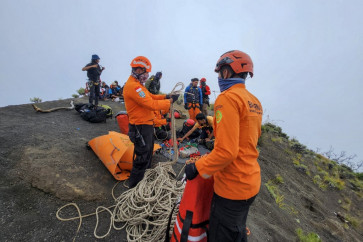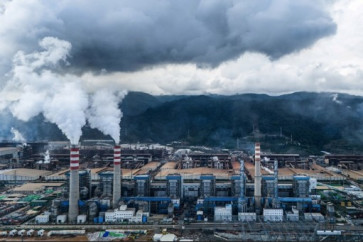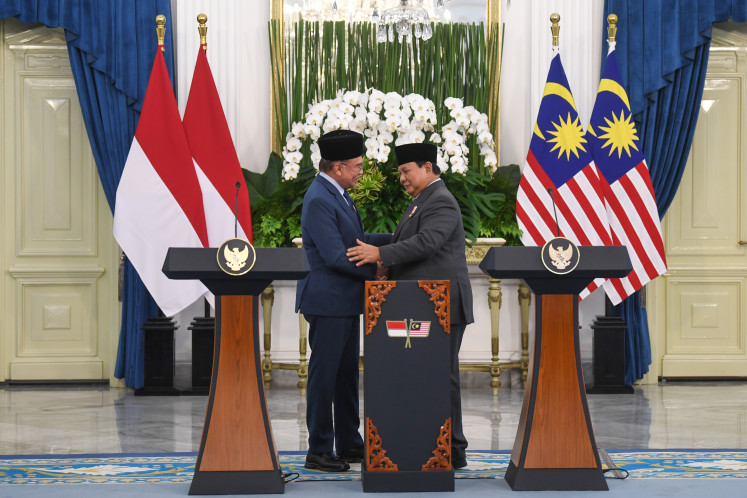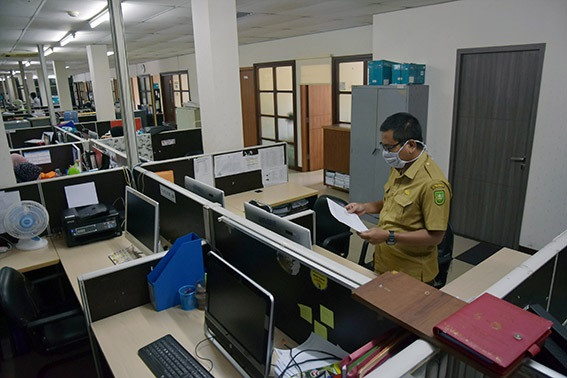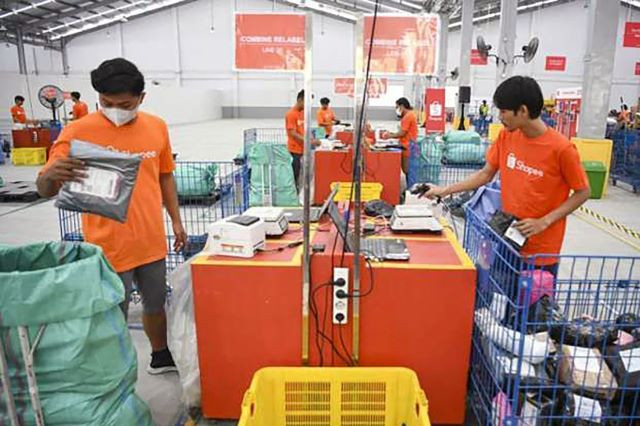Popular Reads
Top Results
Can't find what you're looking for?
View all search resultsPopular Reads
Top Results
Can't find what you're looking for?
View all search resultsFive elephants in a car?
Have you heard the joke about how to fit five elephants in a car? When one poses the question, usually people try to think of a sophisticated answer, when actually the answer is quite simple: Put two in the front and three in the back
Change text size
Gift Premium Articles
to Anyone

H
ave you heard the joke about how to fit five elephants in a car? When one poses the question, usually people try to think of a sophisticated answer, when actually the answer is quite simple: Put two in the front and three in the back.
That analogy perfectly describes the oil and gas industry in newly reformed Indonesia. The energy industry by nature has a 40 year business cycle, from seismic, more seismic, development, marketing, commissioning and then operations and post operations. Most democracies only provide a maximum of 10 years, the span from one party or ruler to another. Five elephants, one sedan.
Let us look back at what happened in the past 12 years since reform. We have had four presidents, three different parties dominating the House of Representatives, fuel price increases by 300 percent, subsidy cutting, electricity shortages, a new status as a net importer of oil, an exit from OPEC in 2004, limited new investments and various disagreements with local governments. The list doesn’t look very impressive, does it?
Ever since the country embraced democracy, there has been a price to pay. Public pressure and the desire to please all stakeholders created a short-sighted approach to everything, including to the oil and gas industry.
It would be unfair to say the country is not fighting its way up to improve the economy. Year 2010 was clear evidence of the country’s ability to weather the storm of the world economic downturn. There was 6 percent economic growth, the inflation rate was at 5.3 percent and oil production almost reached the target of 965,000 barrels of oil per day (bopd).
Signs of improvement are also seen in the energy industry. After laying dormant, new investments started flowing in. This year the country signed 24 new production sharing contracts (PSCs), including contracts for the unconventional Coal Bed Methane. Production numbers reached their target, as some new projects started production.
What’s missing from those numbers are calculations of lost opportunities that the industry endured in the last 12 years since reform happened.
Since 2004, Indonesia has not been a part of OPEC, and since then the government has avoided any discussion of how to return to being a net exporter since at the moment only 35 percent of the total potential energy reserves in the country have been lifted from the ground.
No doubt the country needs investments in the energy industry to put ourselves back as a major energy player.
When exploration is badly needed to ensure that the country can achieve the target of 1 million bopd in 2025, the year 2011 is supposed to be the year where the cabotage law goes into full effect, including for specialized vessels to support exploration in deepwater frontier areas as well as production and development activities. The substance of the law fails to recognize the uniqueness and nature of oil and gas operations.
As an example, the West Seno Block is Indonesia’s first deepwater project. The operator is having difficulty finding the specified rig for deep offshore drilling — as it is still rare in the region and none exist in Indonesia.
When increasing production numbers become a challenge, pressure to ensure supply to the domestic market by imposing sales on domestic buyers has delayed the development of the new LNG hub of Donggi Senoro.
Sales to the domestic market is a good thing as long as it is in accordance with fair market prices. Oil and gas is a for-profit business, and in the end the government will share the profits.
The examples of how the shortsighted approach doesn’t fit with the 40-year cycle of the oil and gas industry could go on and on.
Analysts and major financial institutions expect that Indonesia will continue to bloom in 2011. Stable politics and government are expected to continue in the country for at least another three years.
For the oil and gas industry, the focus on infrastructure will certainly increase the attractiveness for investment, as it will help the movement of energy from its sources to its market. A stable government definitely opens opportunities for discussion and the establishment of amicable policies that can serve the interests of both the nation and — in the case of oil and gas are mostly foreign — investors.
Specific to LNG, Indonesia as the world’s third major LNG exporter, is actually in the race to grab the market before major LNG projects across the globe come downstream in 2016.
But then, how do you fit five elephants in a sedan?
When Indonesia established the PSC system in 1966, it was to get investors to retrieve oil and gas from the subsurface. Other countries learned from Indonesia how to implement the system.
There should be a fundamental recognition that cost recovery does not require the government to provide an incentive, but rather provide its share of the necessary investment as agreed in the production sharing contract. Cost recovery should not be included in the state budget as this is the government’s shares of investment and not expenditure.
To utilize its extensive gas reserves, investors need an appropriate level of return and certainty that the return will be realized. The attractiveness of the return is dictated primarily by the price of gas and producers should be supported in order to obtain a regionally competitive price even for the domestic market.
In order to obtain future production, there needs to be a substantial increase in wildcat exploration activity. In order to achieve and sustain a production target of 1 million bopd, it is estimated that over 100 wildcat wells per year need to be drilled, double the current total.
There should be improved coordination between ministries and early consultations with the industry to assess the impact of new legislation from other ministries.
Some regulations may not be as popular as cabotage or new environmental laws, but will be needed to provide certainty for investors and avoid further delays in production.
Moreover, the world is taking a new stance against corruption. In 2011, countries where most major oil and gas players are based will impose more stringent regulations on the foreign corrupt practices act. Most of the regulations are no different from our anti-gratuity law, but their implementation will be challenging due to the absence of one single interpretation.
We hope 2011 will be the beginning of a journey to improve Indonesia’s energy performance and make it better than the last 12 years.
Let see how an elephant fits into the Chinese year of the Rabbit
The writer is head of BP in Indonesia.
photo caption:
Antara/Yudi Mahatma
Zero tolerance: A Pertamina worker inspects a crude oil processing pipe for leaks at the company’s Balikpapan refinery in East Kalimantan.

